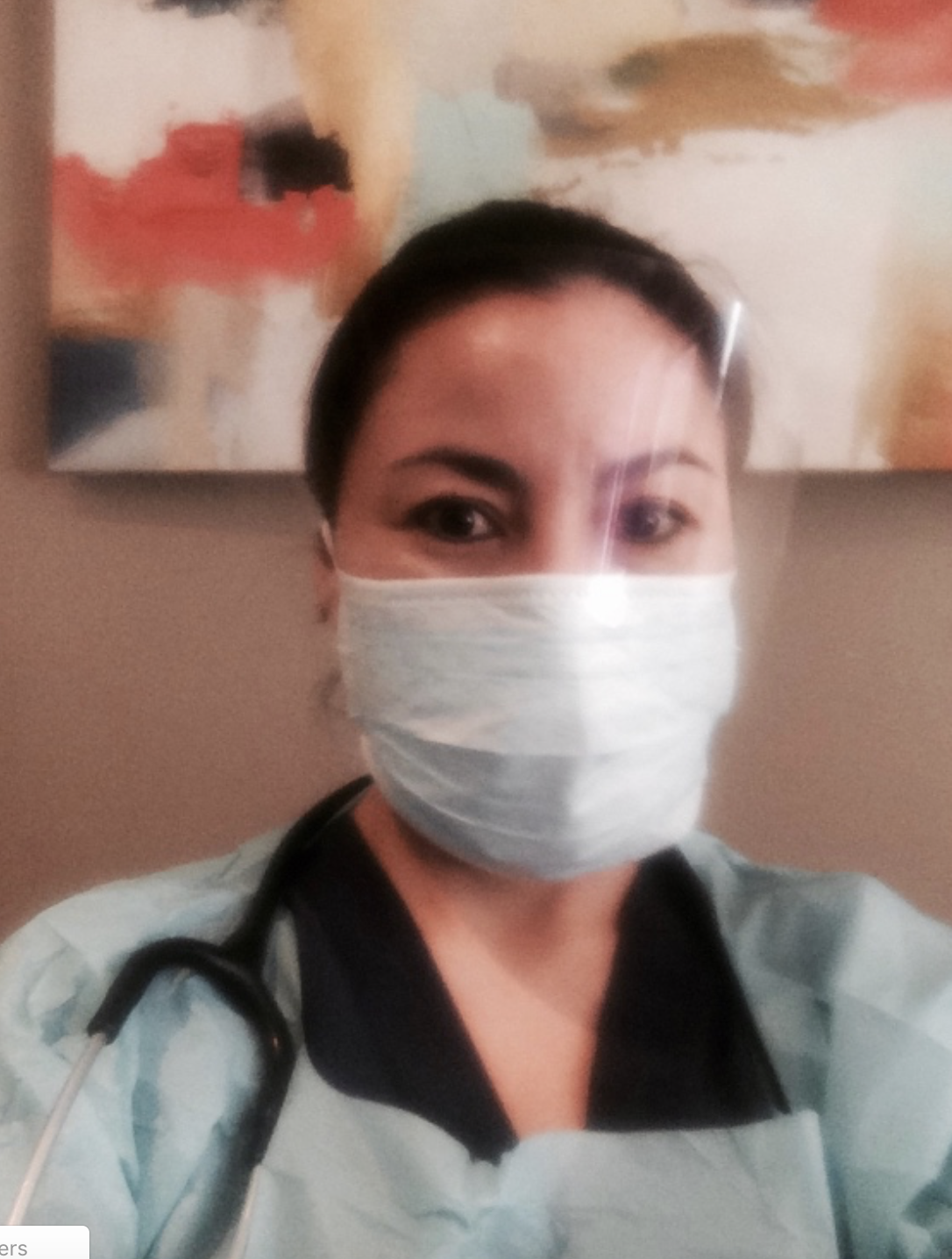
By: Shojanny Salazar Ponce, MD
As the Hispanic/Latinx Community in America is Among the Hardest Hit by COVID-19, Spanish-Speaking International Medical Graduates Remain One of America’s Most Valuable Untapped Resources
The coronavirus disease 2019 (COVID-19) continues to spread at an alarming rate across the globe. The United States (U.S.) leads the world in COVID-19 cases with over 2,932,596 cases and over 130,133 deaths, according to the CDC, Illinois is ranked seventh highest state with COVID-19 cases, with the 53,842 cases occurring in Chicago.1
The Chicago Department of Public Health data shows that minority populations, including Hispanics, African Americans, and Native Americans, have been the most severely impacted by the outbreak. Nearly 47.6 percent of COVID-19 patients are Hispanics who often face additional health disparities such as a lack of available medical care.2
To effectively address the health disparities that affect the Hispanic population, we need to recognize their origin. The U.S. has struggled with a shortage of physicians, including Latino/Hispanic/Spanish-speaking practitioners, ahead of the current pandemic. This shortage is paired with the Hispanic population accounting for the second-largest minority group in the country. The COVID-19 crisis has cast a spotlight on the underlying inequities that prevail in the Hispanic community.3
The number of Spanish-speaking patients has risen significantly, while the shortage of Spanish-speaking physicians has been more evident. Despite this shortage, immigrants including International Medical Graduates (IMGs) have provided meaningful contributions to the American healthcare system. The assistance of the IMGs has made them an essential part of the fight against COVID-19, particularly in helping patients whose care was impeded on by the language barrier.4
COVID-19 has challenged the healthcare system and overwhelmed frontline healthcare professionals. There are many IMGs who live across the U.S. Many of these IMGs have their Educational Commission for Foreign Medical Graduates (ECFMG) certification and have passed all mandatory tests to begin medical residency programs and practice medicine in the United States. 4 IMGs have aptitude, skills, and experience from working with patients when they practiced medicine in their home country. They are looking for opportunities to support the American healthcare system, particularly the heroes working on the frontlines of the COVID-19 pandemic.
It is essential that American government agencies understand the obstacles and challenges for IMGs currently seeking to practice in the United States. Limitations within their visas and limited spots at residency programs, are among the obstacles preventing and delaying these individuals from beginning their professional practice of medicine in this country.4 While the number of IMGs that begin residency programs each year remains low, IMGs have been bringing health care, cultural awareness, and diversification to underrepresented and minority groups, particularly Hispanics, often volunteering in the communities where they live and study.
These highly-trained, fully-capable doctors, unable to practice in an official capacity, are all the more reason for sponsors and organizations like Graduate Medical Education to adopt new policies.4 Ideally a better system can be put in place to utilize these professionals and address the urgent concerns and medical disparities facing the United States’ Hispanic population. Without changes, fighting this pandemic and future diseases are certain to continue to overwhelm the U.S. healthcare system and leave minority populations at further risk.
References:
1. Centers for Disease Control and Prevention. Coronavirus Disease 2019 (COVID-19) In the U.S. Atlanta, GA. Available at: https://www.cdc.gov/coronavirus/2019-ncov/cases-updates/cases-in-us.html. Accessed 24 May 2020.
2. City of Chicago. COVID-19 Research Articles. Chicago Department of Public Health. Available at:https://www.chicago.gov/city/en/sites/covid-19/home/latest-data.html Accessed 08 July 2020.
3. Krouse, H. (2020). COVID-19 and the Widening Gap in Health Inequity. American Academy of Otolaryngology–Head and Neck Surgery, 1-2. https://doi.org/10.1177/0194599820926463
4. Ramon C. and Iacono R. (2020, April 09). Policy Recommendation: Lowering Barriers for Foreign Health Care Workers Can Help U.S. Fight Coronavirus. [Blog Post]. Available at: https://bipartisanpolicy.org/blog/policy-recommendation-lowering-barriers-for-foreign-health-care-workers-can-help-u-s-fight-coronavirus/
